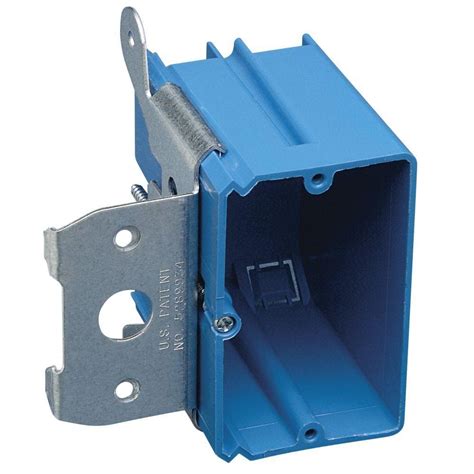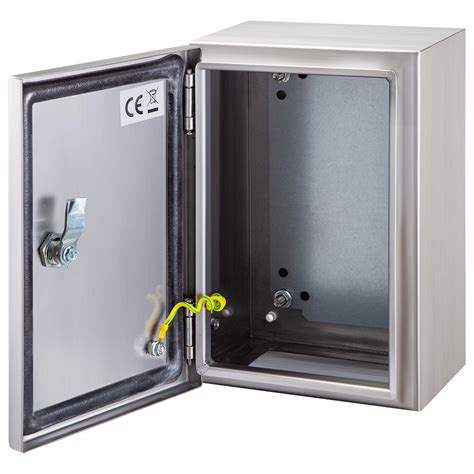all metal electrical boxes must Metal electrical boxes are best for metal-sheathed cable or metal conduit. . This is something travelers may not have seen in any other European country. But why do all Spanish houses have shutters? “Spaniards seem to be afraid of the light,” travel expert Carolyn Jurgens once told the Spanish newspaper El País.
0 · non metal electrical box
1 · metal electrical boxes
2 · metal electrical box safety
3 · metal electrical box problems
4 · metal box electrical wire
5 · electrical code for metal box
6 · electrical boxes vs metal
7 · best electrical boxes
the metal stars you see on the outside of houses and barns — most commonly found in the more rural parts of the U.S. — actually have a deeper meaning.
Strong, fireproof, and incapable of melting, metal boxes offer the greatest level of security for all electrical wiring applications. Compared to plastic boxes, metal electrical boxes are very strong: It is virtually impossible to bend, warp, twist, or crush metal electrical or junction .15 amps: A cable labeled "14-2 with ground" will have two insulated conductors with .BX is a name for metal-armored electrical cable for indoor or outdoor use. . This .Knockouts are the little metal discs covering the holes in the sides or back of a metal .
Metal electrical boxes are best for metal-sheathed cable or metal conduit. .Some metal boxes can be interlocked for larger capacity. Also, metal boxes are usually favored for mounting ceiling fixtures because steel is stronger than plastic. If code requires steel .Bonding of Metal Boxes: The NEC requires that metal boxes be bonded to the grounding system to ensure all metal parts in the electrical system are electrically continuous. Weatherproof Boxes (NEC Article 406.9) :All electrical connections must take place in covered boxes. Boxes where connections are made must be accessible, that is, not buried in a wall or ceiling. Based on local code requirements, .

Junction boxes must be made of non-combustible material, such as metal or plastic. They must be suitable for the specific environment in which they are installed. For example, if you need to install your junction box in a damp or . Both plastic and metal electrical boxes are suitable for most household projects. They can be used interchangeably in many cases, but there are rules to be aware of. Plastic boxes, technically called nonmetallic, are . Understand the different types of electrical conduit, including common types, rigid vs. flexible tubing, grounding boxes, what wiring to use, and why. Use a metal electrical box when metal-sheathed cable (also called armored BX cable) or metal conduit is running in or out of the box. Metal cable and conduit depend on the contact from its metal sheathing to the metal box .
250.4(A)(2),(3), & (4) says that "Normally noncurrent-carrying conductive materials enclosing electrical conductors or equipment" should be grounded and bonded. So while you . Strong, fireproof, and incapable of melting, metal boxes offer the greatest level of security for all electrical wiring applications. Compared to plastic boxes, metal electrical boxes are very strong: It is virtually impossible to bend, warp, twist, or .
Metal electrical boxes are best for metal-sheathed cable or metal conduit. Weatherproof metal boxes for outdoor use are generally made of aluminum. Capable of being groundedSome metal boxes can be interlocked for larger capacity. Also, metal boxes are usually favored for mounting ceiling fixtures because steel is stronger than plastic. If code requires steel conduit, armored cable (BX), or MC cable, you must use steel boxes. All metal boxes must be grounded. For most other residential installations, plastic is .Bonding of Metal Boxes: The NEC requires that metal boxes be bonded to the grounding system to ensure all metal parts in the electrical system are electrically continuous. Weatherproof Boxes (NEC Article 406.9) :All electrical connections must take place in covered boxes. Boxes where connections are made must be accessible, that is, not buried in a wall or ceiling. Based on local code requirements, boxes may be plastic or metal.
Junction boxes must be made of non-combustible material, such as metal or plastic. They must be suitable for the specific environment in which they are installed. For example, if you need to install your junction box in a damp or wet location, it must . Both plastic and metal electrical boxes are suitable for most household projects. They can be used interchangeably in many cases, but there are rules to be aware of. Plastic boxes, technically called nonmetallic, are inexpensive and do not require grounding. Understand the different types of electrical conduit, including common types, rigid vs. flexible tubing, grounding boxes, what wiring to use, and why.
Use a metal electrical box when metal-sheathed cable (also called armored BX cable) or metal conduit is running in or out of the box. Metal cable and conduit depend on the contact from its metal sheathing to the metal box to complete grounding. 250.4(A)(2),(3), & (4) says that "Normally noncurrent-carrying conductive materials enclosing electrical conductors or equipment" should be grounded and bonded. So while you may not have to connect the equipment grounding conductor to the box, the boxes do have to be grounded and bonded. Strong, fireproof, and incapable of melting, metal boxes offer the greatest level of security for all electrical wiring applications. Compared to plastic boxes, metal electrical boxes are very strong: It is virtually impossible to bend, warp, twist, or .
Metal electrical boxes are best for metal-sheathed cable or metal conduit. Weatherproof metal boxes for outdoor use are generally made of aluminum. Capable of being groundedSome metal boxes can be interlocked for larger capacity. Also, metal boxes are usually favored for mounting ceiling fixtures because steel is stronger than plastic. If code requires steel conduit, armored cable (BX), or MC cable, you must use steel boxes. All metal boxes must be grounded. For most other residential installations, plastic is .Bonding of Metal Boxes: The NEC requires that metal boxes be bonded to the grounding system to ensure all metal parts in the electrical system are electrically continuous. Weatherproof Boxes (NEC Article 406.9) :All electrical connections must take place in covered boxes. Boxes where connections are made must be accessible, that is, not buried in a wall or ceiling. Based on local code requirements, boxes may be plastic or metal.
sheet metal design book pdf
Junction boxes must be made of non-combustible material, such as metal or plastic. They must be suitable for the specific environment in which they are installed. For example, if you need to install your junction box in a damp or wet location, it must . Both plastic and metal electrical boxes are suitable for most household projects. They can be used interchangeably in many cases, but there are rules to be aware of. Plastic boxes, technically called nonmetallic, are inexpensive and do not require grounding. Understand the different types of electrical conduit, including common types, rigid vs. flexible tubing, grounding boxes, what wiring to use, and why.
Use a metal electrical box when metal-sheathed cable (also called armored BX cable) or metal conduit is running in or out of the box. Metal cable and conduit depend on the contact from its metal sheathing to the metal box to complete grounding.
non metal electrical box
metal electrical boxes
metal electrical box safety

Here are 5 reasons why you should ground your metal electrical box and what will happen if you don't do that (spoiler: nothing good).
all metal electrical boxes must|best electrical boxes